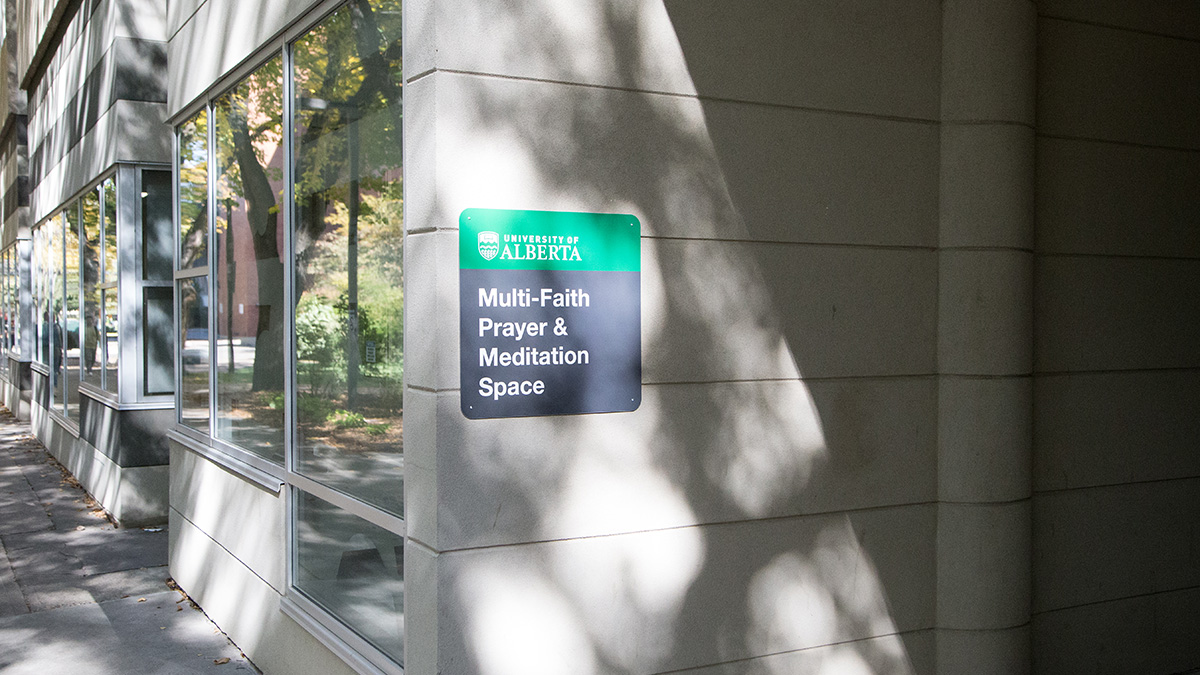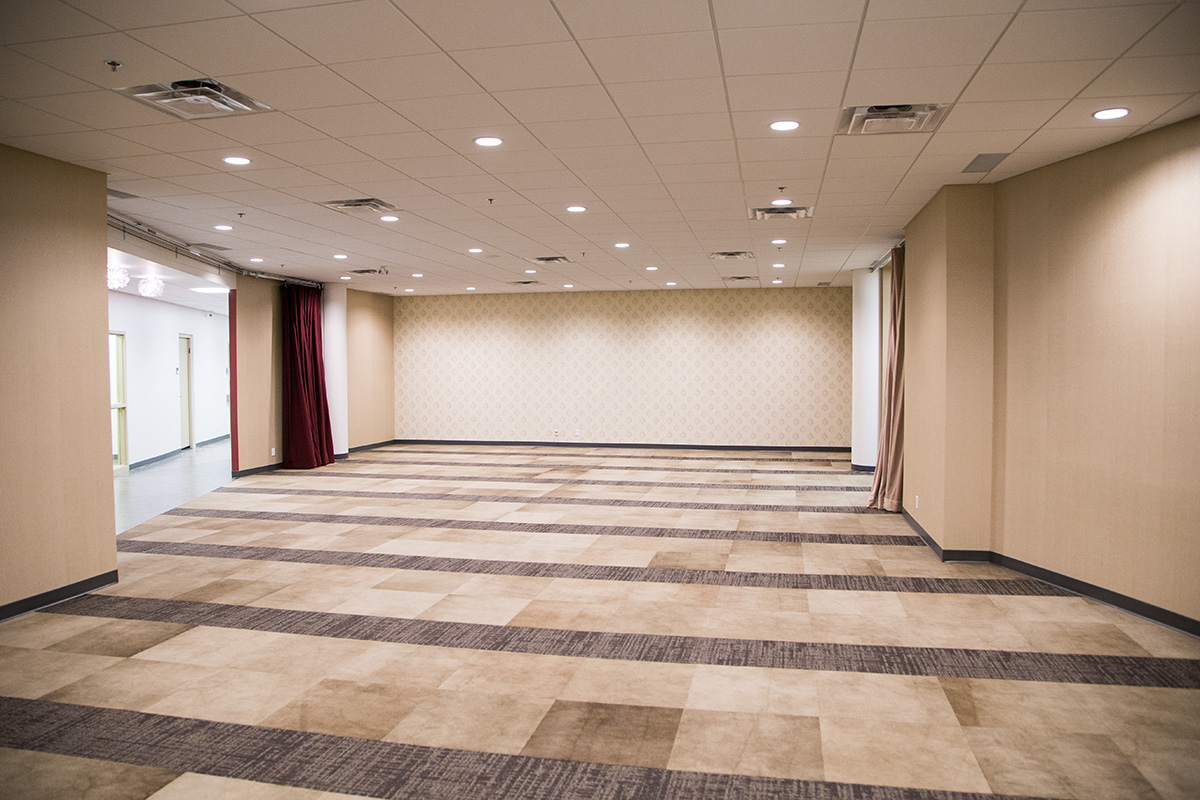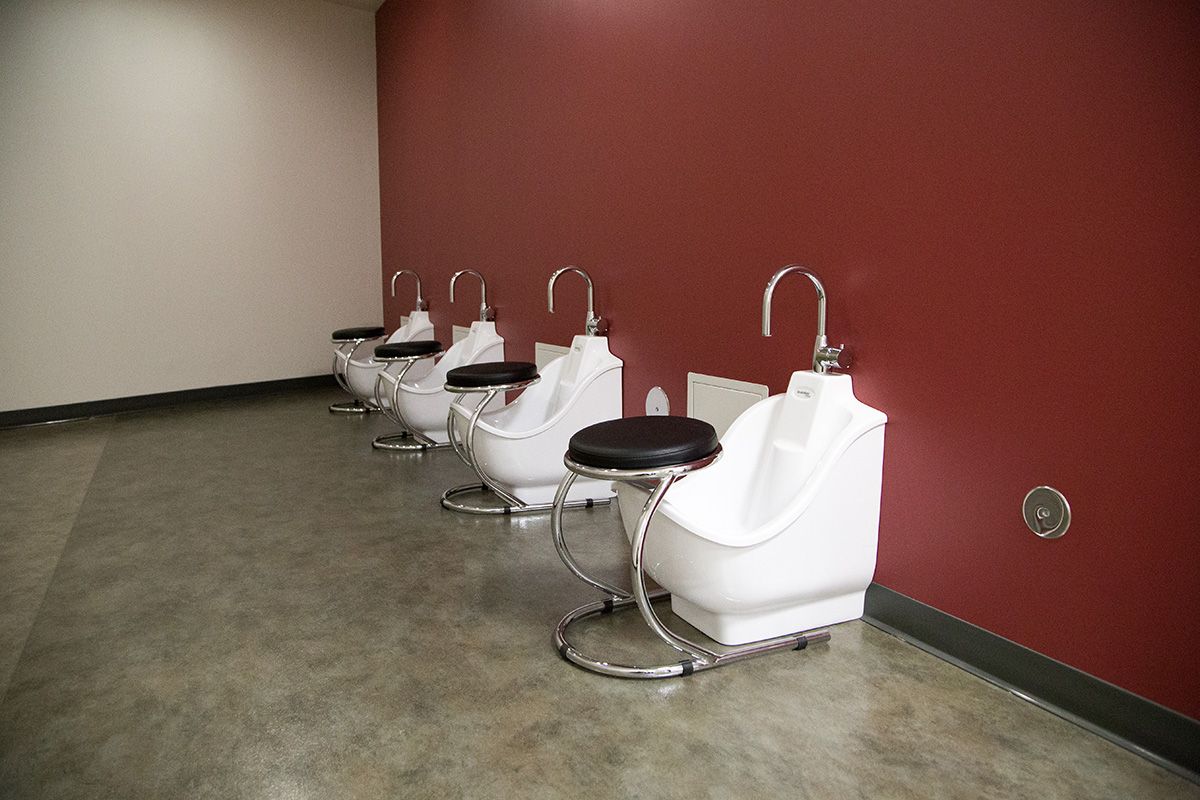Prayer space coming soon to HUB Mall
 Joshua Storie
Joshua StorieA new prayer space is about to open in HUB, which will relieve some Muslim students from having to make long walks to the mosque near 109th street.
The HUB Mall Prayer Space contains multiple different rooms, the biggest of which can fit about 130 people. Before this, the Interfaith Centre on the third floor of the Students’ Union Building has been the main centre for faith committees, but it can only hold about 80 people in total.
University Architect Ben Louie started on HUB’s prayer space in 2013, after consulting with the Graduate Students’ Association. The final project cost university administration $700,000, with no additional funding from students.
“It’s been a delightful three years,” Louie said. “It took a while, but we got it done.”
Farooq Iqbal, former MSA President, said he’s happy a new prayer space has finally been built after advocating to the university for of a new prayer space for nine years. In 2013, he turned to the GSA and the Students’ Union in 2013 for more support. The advocacy has finally paid off — Iqbal said the HUB mall space is beautiful, but it shouldn’t have taken the university so many years to execute.

“I’m happy that progress was made,” he said. “I was afraid that this project has been stalling for so long that it wasn’t going to end up happening.”
While there wasn’t much consultation with students this year, current GSA President Sarah Ficko said past executive teams were consulted with the space’s design.
Faith communities also found more support in 2013 when the Students’ Union opened the Interfaith Centre, a prayer space on the third floor of SUB. But space there is limited, and can be a long, cold walk away for some students that have classes far away from SUB, Iqbal said.
“When we do have a (large enough space), it’s not enough,” he explained. “Most of the time, we don’t have it. So you have people that are praying in random areas all the time.”
Muslim students need to pray five times a day, and at least three of these prayers need to be done during typical school hours. Designated prayer spaces help these students balance their spirituality with their studies, Iqbal said.
An official opening date for the HUB Mall prayer space has not been set, but the Chaplain’s Association hopes it will be in the next few weeks. A dedication service will be held after the space opens as well, Rick Van Manen, Chaplain’s Association chair said.

The Chaplain’s Association has spent 20 years advocating to the university for a new space — which Van Manen said is “too long.” But he said the association is happy with the HUB Mall prayer space — its large capacity will work better for facilitating interfaith dialogue. While Muslims are praying in the main space, a Buddhist group can run a meditation ritual, and Christians can gather for a bible study. This sharing of the space will be particularly useful for campus, he said.
“In a world that sometimes seems to be increasingly polarized … having a space where people can learn about each other can only be beneficial to the campus community,” Van Manen said.





Can Wiccans use the place for prayer? What about Satanists?
Can atheists use it to meditate?
I’m the Wiccan chaplain on campus and the designated scheduler for the space. I intend to have Wiccan rituals in the new space as soon as it’s opened.
Only recognized student religious groups and chaplains will be able to book the space, for insurance liability issues and also to hold people accountable for their use of it.
Can you define a “recognized student religious group”?
Can you define “chaplain”?
Recognized student religious groups are those student groups that are recognized by the University of Alberta, through the Student Union.
Chaplain – I am an ordained clergy person sponsored by an incorporated non-profit church (Congregationalist Wiccan Assembly of Alberta) as a religious representative on campus, and I was accepted for membership in the Interfaith Chaplains’ Association. IFCA is governed by an agreement with the University and all its members adhere to a code of conduct set forward in that agreement.
“Recognized student religious groups are those student groups that are recognized by the University of Alberta, through the Student Union.”
Do they have a process for distinguishing a legitimate religion from a non-legitimate religion?
This conversation is getting vexatious. This question should be addressed to the student union.
In other words, they don’t have a process for distinguishing a legitimate religion from a non-legitimate religion.
Or they won’t tell anyone how they distinguish a legitimate religion from a non-legitimate religion?
I have no idea. Have you asked? Without asking, you cannot know if there is such a process or not.
And, since there is no way that scholars of religion have found to distinguish a “legitimate” religion from a “non-legitimate” religion, I doubt that the Student Union tries to do it either. They can, however, distinguish a registered student religious club from one that is not registered, which makes a difference around insurance liability and legal accountability, which was my point, above.
So you don’t think the student union wouldn’t object to the church of the Flying Spaghetti Monster or the church of the Invisible Pink Unicorn from registering & scheduling use of the room?
The Students’ Union does not screen potential student groups for their beliefs or values. As long as you have ten people (67% of which must be students) and your proposed club rules (bylaws) don’t violate law or the Code of Student Behaviour, they will accept the creation of any religious or non-religious group.
https://www.su.ualberta.ca/services/studentgroups/registration/requirements/
Thank you for the information. Such a system seems the only equitable way to go about it, otherwise you have a situation where a group is tasked with deciding which religions are real religions and which religions are imaginary religions.